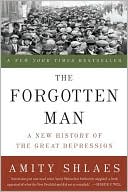Category Books
- Fiction Books & Literature
- Graphic Novels
- Horror
- Mystery & Crime
- Poetry
- Romance Books
- Science Fiction & Fantasy
- Thrillers
- Westerns
- Ages 0-2
- Ages 3-5
- Ages 6-8
- Ages 9-12
- Teens
- Children's Books
- African Americans
- Antiques & Collectibles
- Art, Architecture & Photography
- Bibles & Bible Studies
- Biography
- Business Books
- Christianity
- Computer Books & Technology Books
- Cookbooks, Food & Wine
- Crafts & Hobbies Books
- Education & Teaching
- Engineering
- Entertainment
- Foreign Languages
- Game Books
- Gay & Lesbian
- Health Books, Diet & Fitness Books
- History
- Home & Garden
- Humor Books
- Judaism & Judaica
- Law
- Medical Books
- New Age & Spirituality
- Nonfiction
- Parenting & Family
- Pets
- Philosophy
- Political Books & Current Events Books
- Psychology & Psychotherapy
- Reference
- Religion Books
- Science & Nature
- Self Improvement
- Sex & Relationships
- Social Sciences
- Sports & Adventure
- Study Guides & Test Prep
- Travel
- True Crime
- Weddings
- Women's Studies
The Forgotten Man: A New History of the Great Depression » (Reprint)

Authors: Amity Shlaes
ISBN-13: 9780060936426, ISBN-10: 0060936428
Format: Paperback
Publisher: HarperCollins Publishers
Date Published: May 2008
Edition: Reprint
Author Biography: Amity Shlaes
Amity Shlaes is a senior fellow in economic history at the Council on Foreign Relations and a syndicated columnist at Bloomberg. She has written for The Financial Times and The Wall Street Journal, where she was an editorial board member, as well as for The New Yorker, Fortune, National Review, The New Republic, and Foreign Affairs. Shlaes is the author of The Greedy Hand. She lives in New York.
Book Synopsis
It's difficult today to imagine how America survived the Great Depression. Only through the stories of the common people who struggled during that era can we really understand how the nation endured. These are the people at the heart of Amity Shlaes's insightful and inspiring history of one of the most crucial events of the twentieth century.
In The Forgotten Man, Amity Shlaes, one of the nation's most respected economic commentators, offers a striking reinterpretation of the Great Depression. Rejecting the old emphasis on the New Deal, she turns to the neglected and moving stories of individual Americans, and shows how through brave leadership they helped establish the steadfast character we developed as a nation. Some of those figures were well known, at least in their day Andrew Mellon, the Greenspan of the era; Sam Insull of Chicago, hounded as a scapegoat. But there were also unknowns: the Schechters, a family of butchers in Brooklyn who dealt a stunning blow to the New Deal; Bill W., who founded Alcoholics Anonymous in the name of showing that small communities could help themselves; and Father Divine, a black charismatic who steered his thousands of followers through the Depression by preaching a Gospel of Plenty.
Shlaes also traces the mounting agony of the New Dealers themselves as they discovered their errors. She shows how both Presidents Hoover and Roosevelt failed to understand the prosperity of the 1920s and heaped massive burdens on the country that more than offset the benefit of New Deal programs. The real question about the Depression, she argues, is not whether Roosevelt ended it with World War II. It is why the Depression lasted so long. From 1929 to 1940, federal intervention helped to make the Depression great in part by forgetting the men and women who sought to help one another.
Authoritative, original, and utterly engrossing, The Forgotten Man offers an entirely new look at one of the most important periods in our history. Only when we know this history can we understand the strength of American character today.
Publishers Weekly
This breezy narrative comes from the pen of a veteran journalist and economics reporter. Rather than telling a new story, she tells an old one (scarcely lacking for historians) in a fresh way. Shlaes brings to the tale an emphasis on economic realities and consequences, especially when seen from the perspective of monetarist theory, and a focus on particular individuals and events, both celebrated and forgotten (at least relatively so). Thus the spotlight plays not only on Andrew Mellon, Wendell Wilkie and Rexford Tugwell but also on Father Divine and the Schechter brothers—kosher butcher wholesalers prosecuted by the federal National Recovery Administration for selling "sick chickens." As befits a former writer for the Wall Street Journal, Shlaes is sensitive to the dangers of government intervention in the economy—but also to the danger of the government's not intervening. In her telling, policymakers of the 1920s weren't so incompetent as they're often made out to be—everyone in the 1930s was floundering and all made errors—and WWII, not the New Deal, ended the Depression. This is plausible history, if not authoritative, novel or deeply analytical. It's also a thoughtful, even-tempered corrective to too often unbalanced celebrations of FDR and his administration's pathbreaking policies. 16 pages of b&w photos. (June 12)
Copyright 2007 Reed Business InformationTable of Contents
Subjects
 Economics
Economics  Economic Conditions
Economic ConditionsBusiness Books
 Economics
Economics  Economic History
Economic HistoryBusiness Books
 Economics
Economics  Macroeconomics
MacroeconomicsHistory
 American History
American History  United States History - 20th Century - 1901 to 1945
United States History - 20th Century - 1901 to 1945History
 American History
American History  United States History - 20th Century - General & Miscellaneous
United States History - 20th Century - General & MiscellaneousHistory
 American History
American History  United States History - 20th Century - Wars & Conflict
United States History - 20th Century - Wars & ConflictNonfiction
 History
History  American History
American History
